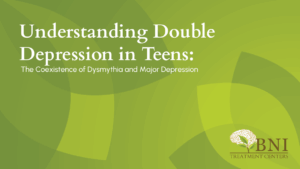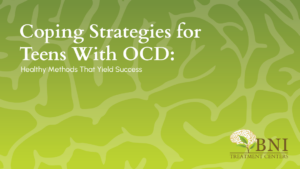Teen Cannabis Use Can Have Serious Effects. Learn About Teen Marijuana Abuse and Risks.
It is very hard to be a parent of teens in any era, much less modern times. But one constant problem has seemed to persist for decades—teens and marijuana use. What parents fretted about in the 1970s remains today one of the biggest concerns for parents. Teens now, though, are smoking or vaping much more potent products, and that is a problem.
The Effects of Marijuana on the Teenage Brain
The teen brain is still maturing. Teens are still learning how to manage emotions, to make good judgments and decisions, and to rein in their impulses. The brain is a work in progress during these years. This is why it is very concerning that many teens may be doing harm to their brains through using weed.
Parents have their work cut out for them. With more and more states passing new laws that allow adults over age 21 to use cannabis, teens are being sent a mixed message. They are growing up thinking that weed is safe, even a health product.
But there is a dark side to marijuana. The plants are curated to be much more potent in recent years. This results in much higher THC levels reaching the teens who smoke or vape this strong weed. Some teens are having symptoms of psychosis, even landing in the E.R.
Also, based on a new report there are signs that today’s cannabis is causing lung damage and even death from vaping. Teens have reported wheezing or whistling in their chest as a result of vaping these THC products. Vaping weed is thought to cause a lung disease called EVALI, which can be fatal.
Parents need to be informed about the dangers of pot and to steer their teen in the right direction.
Marijuana Basics
Marijuana (aka weed, pot, dope) comes from the cannabis plant. The plant produces a resin that contains a substance called THC. The THC is what causes the person who ingests it to feel a high.
For decades weed was not legal, but in recent years many states have changed course. Now laws permit adults over age 21 to hold small amounts without fear of jail time or fines.
It seems parents have been battling the same war forever. The public first became aware of marijuana back in the 1930s. Now with the stronger forms of pot on the market, along with the vaping craze, parents are losing the battle.
Also, there are “edibles,” or forms of THC mixed into food products or drinks, to contend with.
Marijuana has become so favored because of its effects. These include:
- A happy go lucky mindset.
- Euphoria
- A relaxed effect.
- A heightened sensory perception.
- Laughter
- Increased appetite
- Altered perceptions
Not all the effects are pleasant, though. Some people might ingest too much or a very strong version of weed. Some of the effects are intense paranoia, panic, anxiety, psychosis, and fear.
Cannabis and Psychosis
When the teen ingests too high a dose of THC they run the risk of feeling psychotic effects. They may have a sense that their surroundings are altered or not real, such as with hallucinations. Today’s weed is quite potent, so too much of it can result in these upsetting effects:
- Mood swings
- Strange speech patterns
- Trouble expressing thoughts.
- Absence of emotions
- Intense emotions
- Trouble focusing and paying attention.
- Feeling paranoid, fearful
- Magical thinking
- Being withdrawn
- Dissociation
- Delusions
- Seeing things that aren’t there.
- Extreme fatigue
- Feeling restless
- Sleep problems
If a teen ingests too much THC it can result in a mental health crisis that requires acute stabilization.
Marijuana and Lung Damage
Smoking pot is bad for your lungs, but vaping the THC products can be very dangerous. This is due to the sticky vitamin E acetate used in the products. This oily substance can help thin or thicken the THC vape products.
The lung damage that results is called EVALI. A recent study found that 84% of the EVALI lung injuries due to vaping involved cannabis products. Five symptoms of the lung damage include:
- Wheezing or whistling sound in chest.
- Disturbed sleep due to wheezing.
- Limited speech due to wheezing.
- Wheezing during exercise.
- Dry cough at night.
The focus here in the study was on vaping. In fact, so far 68 deaths are blamed on vaping THC products. But experts warn parents and teens that both smoking and vaping are bad for the lungs.
Other Ways Weed Can Harm Your Teen
There are other harmful effects from smoking weed or THC products. When teens begin using pot at an early age they put their mental health at stake, and there are other risks. Some of the adverse effects of marijuana include:
- Ingest too much THC, as in edibles, is sometimes toxic.
- Impairs social functioning.
- Causes the teen to lose interest in school or setting future goals.
- Causes memory problems.
- Can cause reduced brain size
- May lead to teen mental health issues, such as depression or psychosis.
- May lead to a DUI.
- Dulls the mind.
Using THC products often, even daily, can lead to addiction. The teen may begin to believe they can’t get to sleep without smoking weed. They may use these THC products as a type of escape from real life. Over time, this can have a profound effect on the teen and their future.
BNI Treatment Offers Treatment for Teens
BNI Treatment Centers provide an evidence-based treatment approach designed just for teens. Teens may have had adverse mental health effects from a cannabis addiction. This might be psychosis or paranoia. For some teens, depression or anxiety can take hold. If your teen has had these effects from marijuana, our team can help him or her regain mental wellness. For questions about the program, please contact us at (888) 522-1504.



